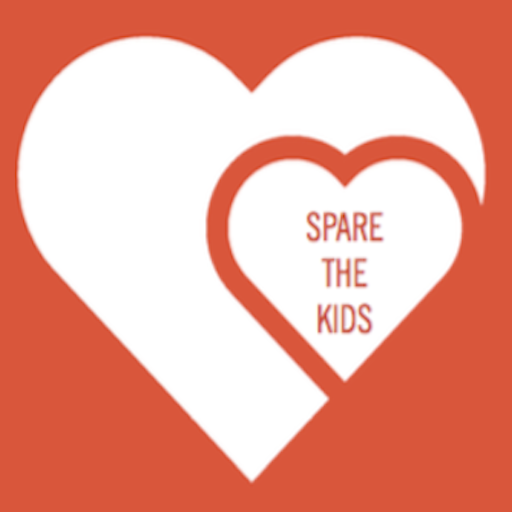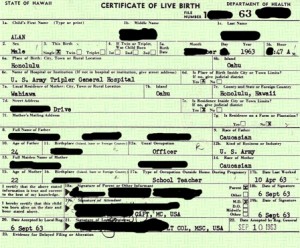Alex Haley, author of Roots, understood the connection between family history and self-identity.
“In all of us,” he wrote, “there is a hunger, marrow-deep, to know our heritage –to know who we are and where we have come from. Without this enriching knowledge, there is a hollow yearning. No matter what our attainments in life, there is still a vacuum, an emptiness, and the most disquieting loneliness.”
Though Mr. Haley’s book specifically addressed black slaves and their desire to maintain their African identity, and their quest to recover lost connections as a result of the quagmire of centuries of bondage, the need to know one’s origins is a universally human theme.
Of all groups, adoptees know all too well about that hunger, yearning, emptiness and loneliness that Mr. Haley described.
This is why many of us, even those who have wonderful relationships with their adoptive parents, are driven to search for answers to important questions: Who am I? Where did I come from? Who are my birth parents? Do I look like them? Do I have brothers and sisters? Why was I given up?
Imagine living a life without a sense of continuity and without access to basic information about your body, health, identity and history. And now imagine being told by a state bureaucracy that your birth certificate is a secret; that your birth is none of your business.
This is the case in the State of New Jersey where adoptees have been fighting for 33 years to gain access to their original birth certificates. Our last Adoptees Birthright bill passed the state senate in March 2011 but was subsequently vetoed by Gov. Chris Christie. Now we have a new bill, sponsored by Senators Joe Vitalie and Diane Allen, and the fight is on again.
This week I testified before a state senate hearing in Trenton, New Jersey in support of the new bill. I support this bill because I believe that having truthful documentation of one’s birth is a civil rights and human rights issue. And I also believe that birth certificates are the missing link in the adult adoptee’s healing process.
The last person to testify at the senate hearing was Robert Allan Hafetz, an adoptee and family counselor from Doylestown, PA who has chronicled his own adoption reunion process in a book called Not Remembered, Never Forgotten. Mr. Hafetz gave a scientific perspective on how unnatural separation from birth mothers causes trauma in the first hours of an adoptee’s life and can have lifelong consequences. His testimony was a huge moment of revelation for me and I finally felt validated by my hunger to know after so many years of some people in my life suggesting that I’m obsessed with by birth history or that I should just “let it go and move on.”
Here is an excerpt of Mr. Hafetz’s testimony, which was adapted from an earlier essay:
It is from the moment of separation that the adoption experience begins for the adoptee.
On the first day of life we are nine months and one day old. We are one with the mother, existing as a mother baby dyad. The birth of the self has not yet occurred and mother and child exist in a state of harmony, literally, as a single being. Between them flows a virtual language of emotion, with affects functioning as words, and a familiar touch as a shared voice. Mother and infant are engaged in a complex emotional dialogue that teaches the infant trust, hope, and the nature of their unique world. The memories, emotions, and the struggle to bring them into balance dwell in the emotional domain of the adoptee’s mind.
At birth the limbic system is functioning and enables the infant to learn, dialogue with the mother, and to create memory representations. Adoptees can experience emotional memories as specific affects years even decades after they occur.
Many adult adoptees will speak of feeling sadness, emptiness, and isolation, often struggling for the right words to explain their feelings. It is very difficult for memories recorded in infancy to be explained or understood verbally after the child eventually develops verbal skills and advanced cognitive abilities.
Imagine having profound feelings and not being able to understand them, explain them, or ask for help in dealing with them. This is the great disconnect adoptees experience. The dimension of the mind that thinks, doesn’t understand the mind that feels, or the powerful memories that dwell beneath the consciousness.
As I listened to Mr. Hafetz speak, I thought back on past behaviors and past relationships and about all the people I pushed away because I was too afraid to be loved or to give it.
People told me that they’d never abandon me. But my emotional memories, set in the early hours of my life, triggered fears that were exactly the opposite. I knew I belonged, but I felt isolated. At times I’ve felt isolated even in a crowded room. To others, I may look whole from the outside, but there’s always something missing inside me.
There is, as Mr. Hafetz explained, an incongruence between the adoptee’s thoughts and feelings, which is the foundation of poor attachment, behavioral problems, power struggles, and trust issues that the people in an adoptee’s life can’t always understand.
“The struggle to bring thoughts and feelings into coherence can be a lifelong task for adopted children,” said Mr. Hafetz.
He eventually found a way to build a bridge within his mind and join parts of himself that were lost. Like me, Mr. Hafetz searched for his biological mother. But his reunion, like mine, was with a grave.
Standing over our dead mothers brought us some answers, some healing from the trauma of our unnatural separation. Mr. Hafetz and I were lucky enough to find our birth mother’s without access to our birth certificates. So imagine how legions more adoptees can potentially be healed if they are given this key piece of paper that will allow them the choice to take their own journey from abandonment to healing.
If you support the right of New Jersey adoptees to access our original birth certificates please drop a note to the President SenSweeney@njleg.org and Senate Republican Leader SenKean@njleg.org.



As hard as it is to not know your birth parents and to have that feeling of disconnection from the woman who gave birth to you and all of your blood relatives, it is equally hard to be abused by your birth parents and have your relatives condone it.
How can a mother, hurt her own child, treat it less than a dog. A child she carried for 9 months and went through pain to bring into the world. Where is ‘her’ bond? Sadly there are many kids who are wondering ‘why?’ Why do my mother hurt me so much? Why does she hit me, slap me around, emotionally and physically abuse me?
Kids who are lucky enough to be adopted, hopefully are brought together with a mother and father who really want them, and hopefully they are not abused. (I’m not talking about foster parents). Kids who are born to parents because of failure to have responsible sex, thus resulting in an unwanted pregnancy that they now have to ‘deal with’ suffer so much.